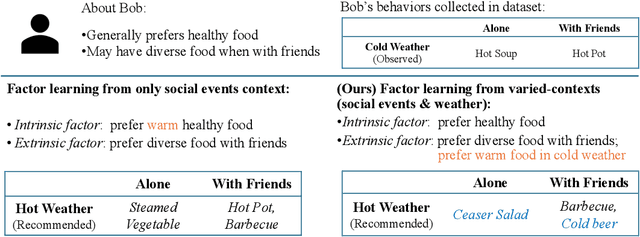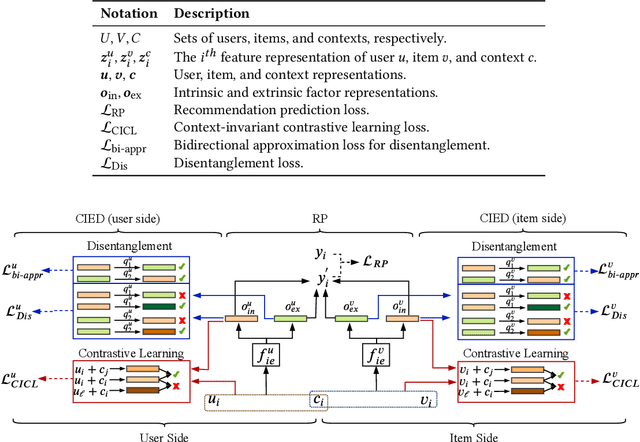Intrinsic and Extrinsic Factor Disentanglement for Recommendation in Various Context Scenarios
Paper and Code
Mar 05, 2025



In recommender systems, the patterns of user behaviors (e.g., purchase, click) may vary greatly in different contexts (e.g., time and location). This is because user behavior is jointly determined by two types of factors: intrinsic factors, which reflect consistent user preference, and extrinsic factors, which reflect external incentives that may vary in different contexts. Differentiating between intrinsic and extrinsic factors helps learn user behaviors better. However, existing studies have only considered differentiating them from a single, pre-defined context (e.g., time or location), ignoring the fact that a user's extrinsic factors may be influenced by the interplay of various contexts at the same time. In this paper, we propose the Intrinsic-Extrinsic Disentangled Recommendation (IEDR) model, a generic framework that differentiates intrinsic from extrinsic factors considering various contexts simultaneously, enabling more accurate differentiation of factors and hence the improvement of recommendation accuracy. IEDR contains a context-invariant contrastive learning component to capture intrinsic factors, and a disentanglement component to extract extrinsic factors under the interplay of various contexts. The two components work together to achieve effective factor learning. Extensive experiments on real-world datasets demonstrate IEDR's effectiveness in learning disentangled factors and significantly improving recommendation accuracy by up to 4% in NDCG.
 Add to Chrome
Add to Chrome Add to Firefox
Add to Firefox Add to Edge
Add to Edge